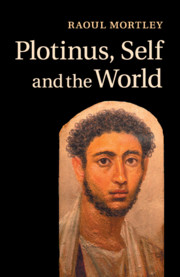Book contents
- Frontmatter
- Contents
- Preface
- Introduction
- 1 The individuated self and memory
- 2 Memory and forgetting
- 3 Ignorance, love and play
- 4 Plotinus’ Eros
- 5 The self: ‘and we too are kings’
- 6 Being and having
- 7 Self-knowledge
- 8 Art and the seduction of beauty
- 9 Face, image and the self
- Conclusion
- Bibliography
- Index
- References
3 - Ignorance, love and play
Published online by Cambridge University Press: 05 October 2014
- Frontmatter
- Contents
- Preface
- Introduction
- 1 The individuated self and memory
- 2 Memory and forgetting
- 3 Ignorance, love and play
- 4 Plotinus’ Eros
- 5 The self: ‘and we too are kings’
- 6 Being and having
- 7 Self-knowledge
- 8 Art and the seduction of beauty
- 9 Face, image and the self
- Conclusion
- Bibliography
- Index
- References
Summary
Insofar as it is a whole, what exists is beautiful, says Plotinus. He takes up the Greek book of Genesis, Plato's Timaeus (37 ff.), in order to demonstrate this point. The demiurge, the creator and craftsman of the Timaeus, is cited in evidence of the proposition that the world is beautiful: the craftsman, we are told, admires his completed work. And this is what the Timaeus says: just as Yahweh, the Hebrew God, sees his completed work to be good in Genesis 1.3 1, so the demiurge ‘was delighted’ (Tim. 37c) when he saw the world alive and moving, a ‘veritable ornament for the eternal gods’. Since he was pleased, Plato says, the demiurge determined to make the world more like its model.
Plotinus does not quite put it like this. He does start with the view that what exists is a thing of beauty, and this is in a way his rejoinder to the Gnostics (see below). But Plotinus says that the demiurge approved his created work in order to point to the beauty of the Idea on which it was based. This didactic activity is somewhat different from the demiurge's spontaneous rejoicing in the Timaeus. Why does Plotinus’ demiurge find it necessary to remind us of Platonic exemplarism at this point? There is a nuance in the interpretation here: Plotinus does not want the demiurge unabashedly admiring the physical world, with quite the same immediate spontaneity of Plato's text. Plotinus’ corrective consists in making the demiurge more other-worldly. The essence of contemplation lies in looking above the world at form and the Intellect. The demiurge is looking in the wrong place.
- Type
- Chapter
- Information
- Plotinus, Self and the World , pp. 40 - 54Publisher: Cambridge University PressPrint publication year: 2013



